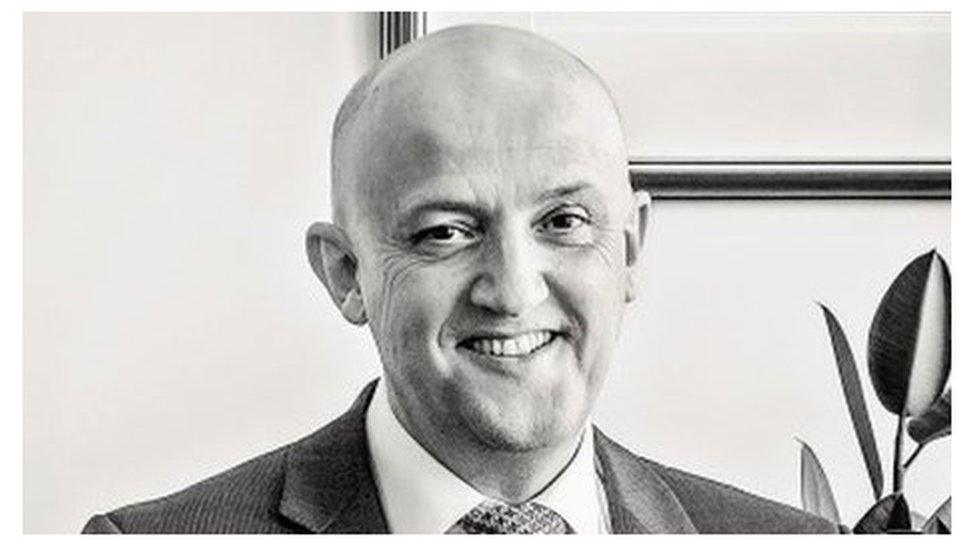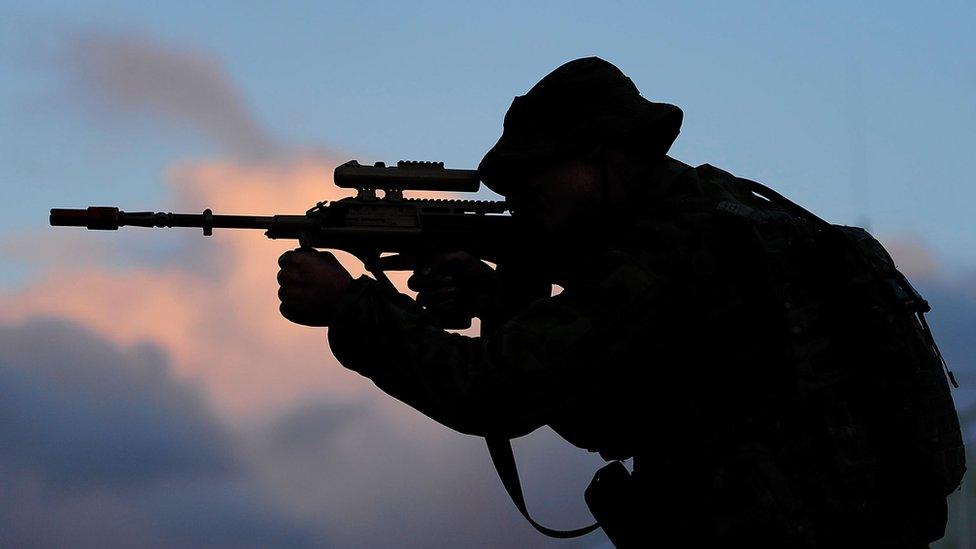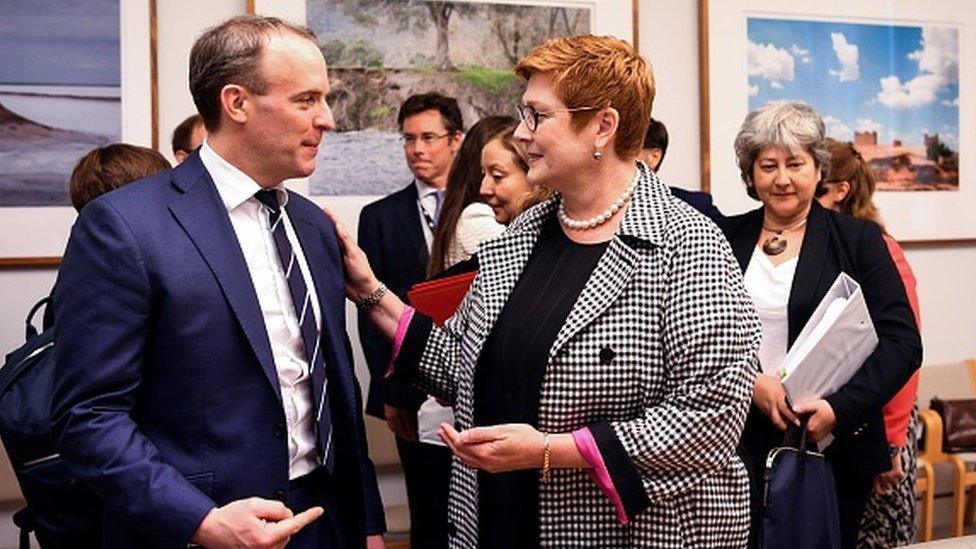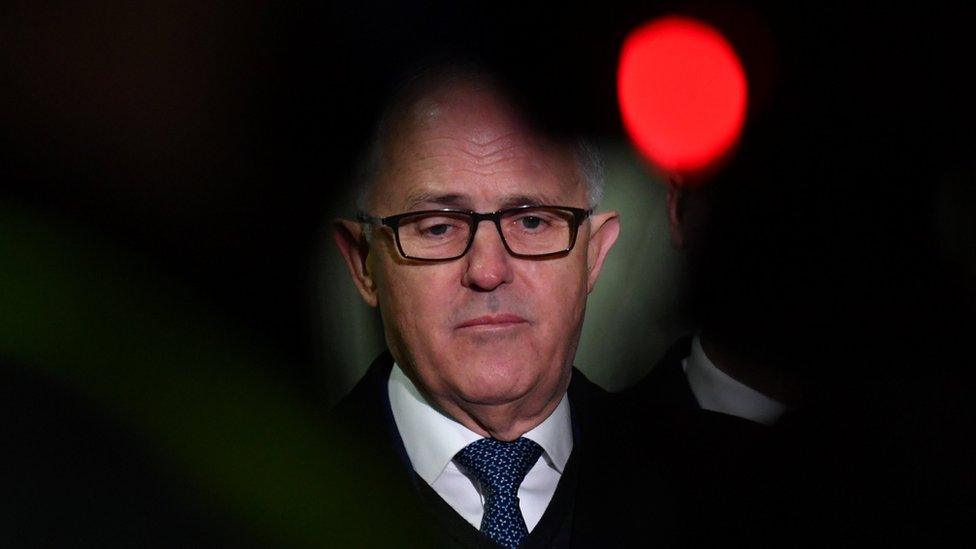Australia intelligence chief warns of neo-Nazi threat
- Published

Australian Security and Intelligence Organisation (ASIO) Director General Mike Burgess made a rare public address
Australia's intelligence chief has warned of a "real threat" to the country's security from neo-Nazis.
ASIO Director General Mike Burgess said "small cells" of right-wing extremists were meeting regularly to salute Nazi flags and share their ideology.
He said the threat from foreign espionage was also now higher than during the Cold War.
And he revealed that a foreign "sleeper agent" had been planted in Australia and conducted espionage for some years.
After a long period of dormancy, the agent had started feeding information to handlers and causing problems for dissidents from their country of origin, before being caught, Mr Burgess said.
He did not specify which country had planted the agent.
In a rare public address at the headquarters of the Australian Security and Intelligence Organisation (ASIO), Mr Burgess said the threat from the extreme right was real and growing.
"In suburbs around Australia, small cells regularly meet to salute Nazi flags, inspect weapons, train in combat and share their hateful ideology," he said.
He cited the case of an Australian being prevented from leaving the country to fight on a foreign battlefield.
Cases like this were rare at the moment but "concerning", he said.
Two years ago Australian media obtained a photo of an Australian army vehicle in Afghanistan flying a swastika flag, external in 2007, an incident that was condemned by then Prime Minister Malcolm Turnbull as "completely unacceptable".
However, defence sources said the incident was more likely to be a "twisted joke" than genuine right-wing extremism.
On the subject of foreign espionage, the intelligence chief said a range of nations were seeking to influence politicians, media figures, business leaders and academics.
"The level of threat we face from foreign espionage and interference activities is currently unprecedented. It is higher now, than it was at the height of the Cold War," he said.
Mr Burgess's comments come despite a wide-ranging package of laws being passed in 2018 aimed at preventing foreign interference including espionage.
At the time Mr Turnbull acknowledged "disturbing reports about Chinese influence", an assertion strongly denied by Beijing.
- Published14 June 2018

- Published15 February 2020

- Published28 June 2018
